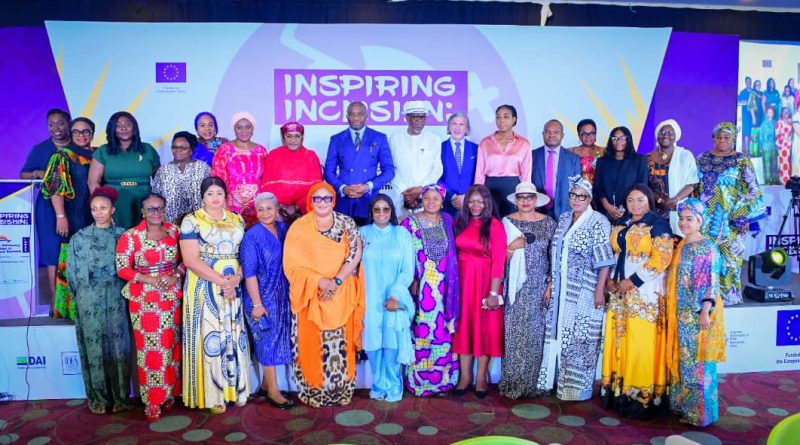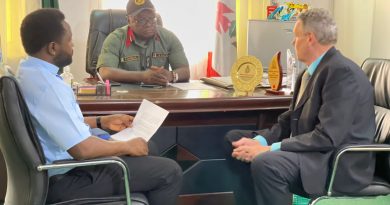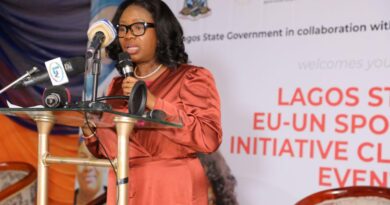EU Insists Inclusion Of Women In Politics, Governance Important For Sustainable Development
By Bukar BOLORI
The European Union (EU) Ambassador to Nigeria and ECOWAS, Samuela Isopi, has stated that the active participation of women in decision-making and politics remains important if Nigeria is to achieve equality, sustainable development, peace, and democracy.
She noted that while women have the fundamental right to participate in political life, most of them still face a lot of social, cultural, and financial challenges.
Isopi reminded stakeholders, especially the National Assembly, that the ongoing constitution reform process presents Nigeria with a unique opportunity to join the league of progressive nations in promoting gender parity through the adoption of a legal framework that discourages discrimination based on gender.
Isopi, who was represented by the EU Deputy Head of Mission to Nigeria, Zissimos Vergos, made this known in Abuja, during a two-day roundtable on women inclusion in politics, in commemoration of the International Women’s week, organised by the European Union Support to Democratic Governance in Nigeria (EU-SDGN), with the theme: “Women’s Underrepresentation: Exploring the Use of Temporary Special Measures to Elect Women to Parliaments, said: “Over the years, strategies to increase women’s participation in politics have been advanced through conventions, protocols, and international agreements for gender mainstreaming. However, they are yet to prove effective in achieving gender parity in the highest government rankings.
“Thus, women continue to be underrepresented in government, and face barriers that often make it difficult for them to access, exercise political power, and assume leadership positions.”
She noted that: “In Nigeria, the advocacy for women’s political participation has been long drawn, and in spite of the very dynamic interventions by women groups and other key stakeholders, their representation remains in steady decline. For example, women’s representation in the 10th National Assembly is 7.4 percent out of a total of 469 combined seats in the Senate and House of Representatives.”
She stressed that there is strong evidence that as more women are elected to office, there is an increase in policymaking that emphasises quality of life, and reflects the priorities of families, women, and marginalised groups.
“Women tend to work across party lines, be highly responsive to constituent concerns, help secure lasting peace, encourage citizen confidence in democracy through their own participation, and prioritise health, education, and other key development indicators.
Isopi said: “Women’s political leadership may not be the only answer to sustainable development, but the foregoing underscores the important contributions women offer when given equal opportunities to men. We must therefore strive for a society where every woman does not just feel safe enough to survive but empowered enough to thrive.”
In his remarks, the Deputy Speaker, House of Representatives Rt. Hon. Benjamin Kalu, explained that women bring immense value to nation-building, particularly as they are more thorough, unbiased, look beyond themselves, and are selfless.
He said: “What the best performing African countries regarding female representation have in common is the adoption of electoral quotas for women; a system which is not present in the nations at the bottom of the ranking. Unfortunately, Nigeria happens to be one of them. The last position is Nigeria, with only 4 percent of women holding seats in the House of Representatives, and 3.6 percent in the Senate. That is sad.
“In Nigeria, only 4 percent of women hold seats in the House of Representatives, and 3.6 percent in the Senate. That is sad. These figures paint a picture of stack disparity and highlight the urgent need for proactive and corrective measures to address the gender imbalance in political representation.”
On her part, Chair, Senate Committee on Women Affairs, Senator Ireti Kingibe, said, “As of the 9th Assembly, we ranked 182 out of 186 countries in the world in terms of women in governance and politics. Nigeria faces significant gaps in women participation across all arms and levels of governance, reflecting a pressing need for increased gender inclusivity.
“Recent data reveals that women remain underrepresented in political spheres, with only 3.411 percent of parliamentary seats held by women. 4 out of 109 Senators, and 14 out of 360 members of the House of Representatives. Part of the problem that I see is that first, the women are not usually on the ballots, let alone to get voted for. Therefore, one of the first places to start would be the political parties.
“Even when the women get elected, even within the Chambers and the House, there is a lot of discrimination and lack of inclusion. It is not just about getting women elected but is also about changing the psyche of the average man for him to understand that women are important in governance and decision-making, just as he thinks his mother and wife are important.”
The Chair, House Committee on Women in Parliament, Hon. Fatima Talba added that: “There is an urgent need to address the imbalance that we are seeing today in governance. There is a need to address women’s inclusion in politics and building bridges to empower women in politics.
“While there are over 150 committees in the National Assembly, there are committees with no women in it. How can the interest of women be protected? Women make up about 65 percent of the population, yet when it comes to decision-making, we are excluded.
”Executive Director, Policy, and Legal Advocacy Centre (PLAC), Mr. Clement Nwankwo, in his remarks, decried the unfair social, cultural, and political hurdles women have to scale to be able to hold political offices.
He said: “Recent elections in Nigeria in 2023, completely underscores the challenge we have in women representation, especially when you have a situation where out of 109 Senators, only 4 are women. Also, in the House of Representatives where you have 360 representatives, and only 14 are women. This tells you the crisis of inclusion that Nigeria is faced with.
“Women continue to face severe challenges, even contesting elections in the primaries. After scaling past the primaries, they then have to face the bigger conversations around contesting in the election itself. This is an issue that goes to the root of our democracy and the structure of governance in the country.”




